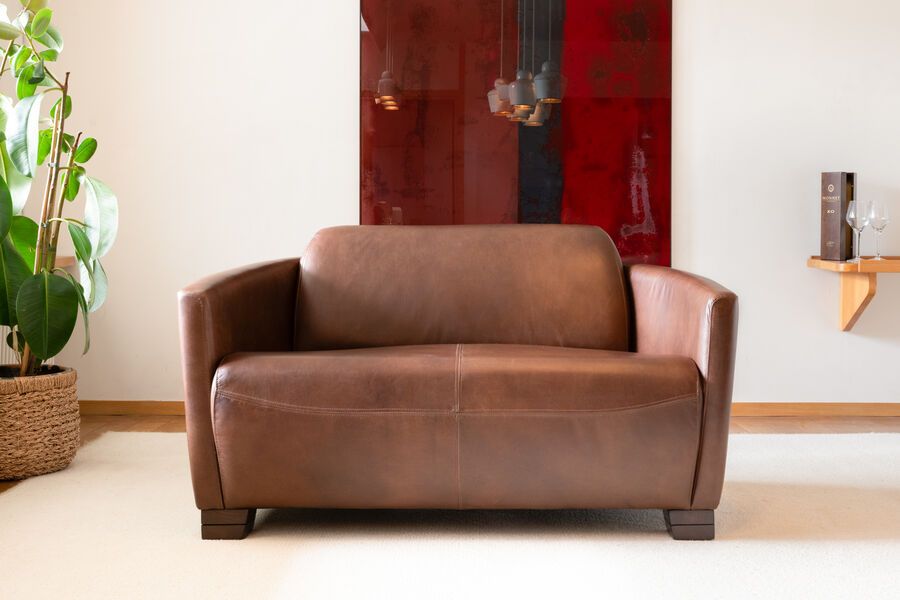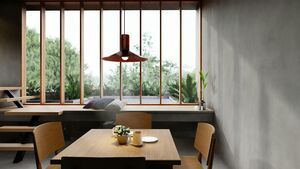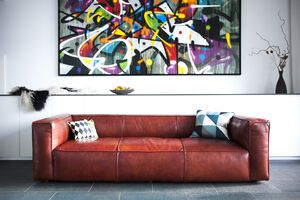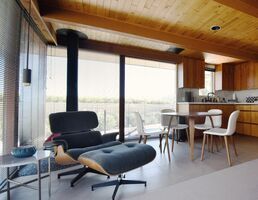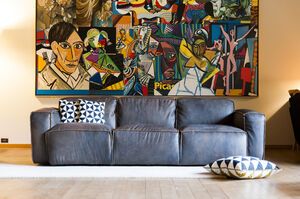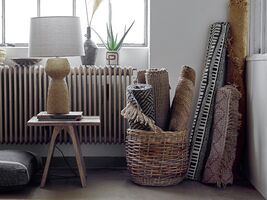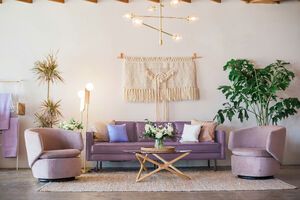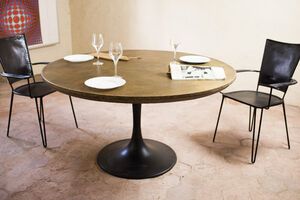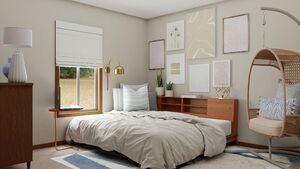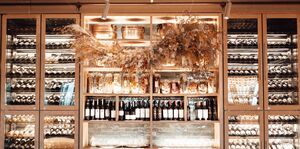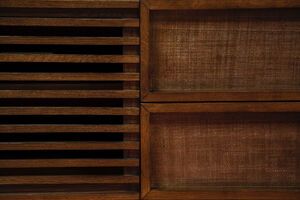In the world of vintage furniture, certain pieces transcend decades without ever losing their presence. This is true of the sideboard and the credenza?two furnishings with often similar lines, but distinct uses and personalities. One evokes the familiar solidity of versatile storage; the other, the elongated finesse of a piece that resembles sculpture.
When facing these two icons of interior design, the choice isn't simply a matter of taste: it's a reflection of how you perceive space, functionality, and even lifestyle. Choosing between a vintage sideboard or credenza is about tuning your home to a rhythm, an intention, a way of living.
In this article, we explore their differences, strengths, and the key criteria to help you make an informed decision?not between two objects, but between two design personalities.
Sideboard and Credenza: Two Styles, Two Statements
The sideboard is recognizable by its more compact and taller shape. Typically fitted with hinged doors and sometimes drawers, it naturally fits into a dining room or hallway, where it stores tableware, linens, or daily-use items. Its vertical volume offers ample storage while taking up little floor space?making it a valuable ally in smaller interiors.
The credenza, on the other hand, stretches elegantly along the horizontal. Born in the post-war era and popularized by Scandinavian design, it often rests on slim, elongated legs that lighten its visual presence. Lower than a sideboard, it can hold decorative items, a lamp, mirror, or TV, becoming an anchor in your space layout.
Through their proportions, these two pieces reveal different ways of inhabiting space: the sideboard?practical and reassuring; the credenza?fluid and expressive. The choice depends on the room, its layout, and the desired effect.
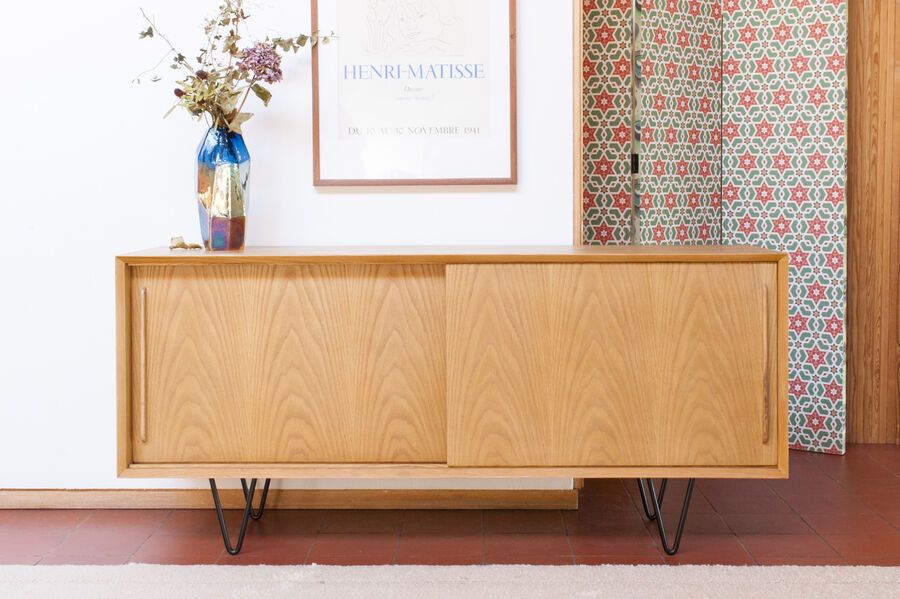
Light Wood Sideboard Fiska
Why Choose Vintage Furniture Today?
Choosing vintage furniture isn?t just about style: it?s a choice for furniture with meaning, character, and a quietly confident presence.
Vintage furniture reflects a timeless aesthetic, far removed from fleeting trends. Its lines?often inspired by major 20th-century movements like modernism, Scandinavian design, and industrial influences?stand the test of time. They speak of balance, refined proportions, and a love of detail that doesn?t need to show off.
Matte finishes, natural materials, and the return of patina and raw textures are strong trends today. We?re no longer seeking the ?perfect? piece, but one with depth, history, and honest craftsmanship.
Whether it?s a sideboard or a credenza, these pieces become visual anchors in a home. They are showcased, often even isolated on a wall, just like a quiet yet essential artwork.
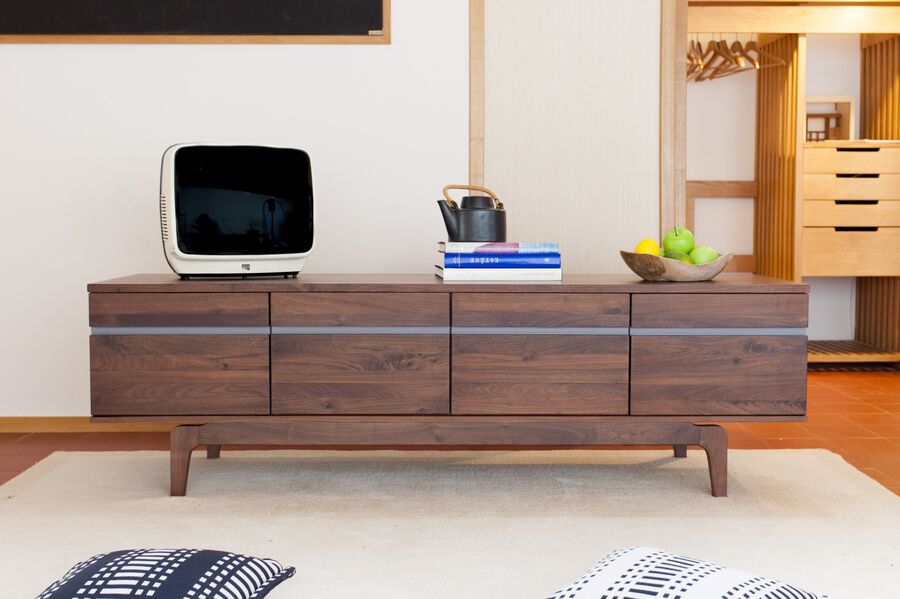
Nelio Walnut Credenza
Finding Its Place and Rhythm in the Space
Choosing between a sideboard and a credenza isn't just an aesthetic impulse. It?s a decision built around a few key questions, where use, space, and intent each play their part.
In a compact dining room, a tall sideboard offers maximum storage while taking up limited floor space. In a living room, a low credenza opens up the view while structuring the space. The furniture must adapt to the room's proportions, the flow of movement, and natural light.
As for decoration, less is more. A vintage piece already has strong character. A slender mirror, a carefully chosen lamp, or a few well-placed objects are enough. Leaving space around the piece strengthens its visual impact and brings a sense of calm to the layout.
Finally, aim for overall harmony. Sideboard and credenza can pair with contemporary, industrial, or even classical furniture?provided there's balance in volumes, tones, and textures. That silent coherence is what makes an interior work.
Conclusion: Sideboard or Credenza, a Matter of Rhythm and Perspective
Between the sideboard and the credenza, there?s no better choice?only the one that resonates with your space and your way of living.
The sideboard grounds, anchors, structures. The credenza lightens, stretches, composes. Both carry the elegance of vintage with subtlety and depth. They express a love for well-made things, for material, and for a way of life where objects carry meaning.
In the end, making this choice means choosing a rhythm, a presence, a way to organize daily life without giving up beauty. A decision that is both practical and poetic?true to the timeless style that PIB champions.
